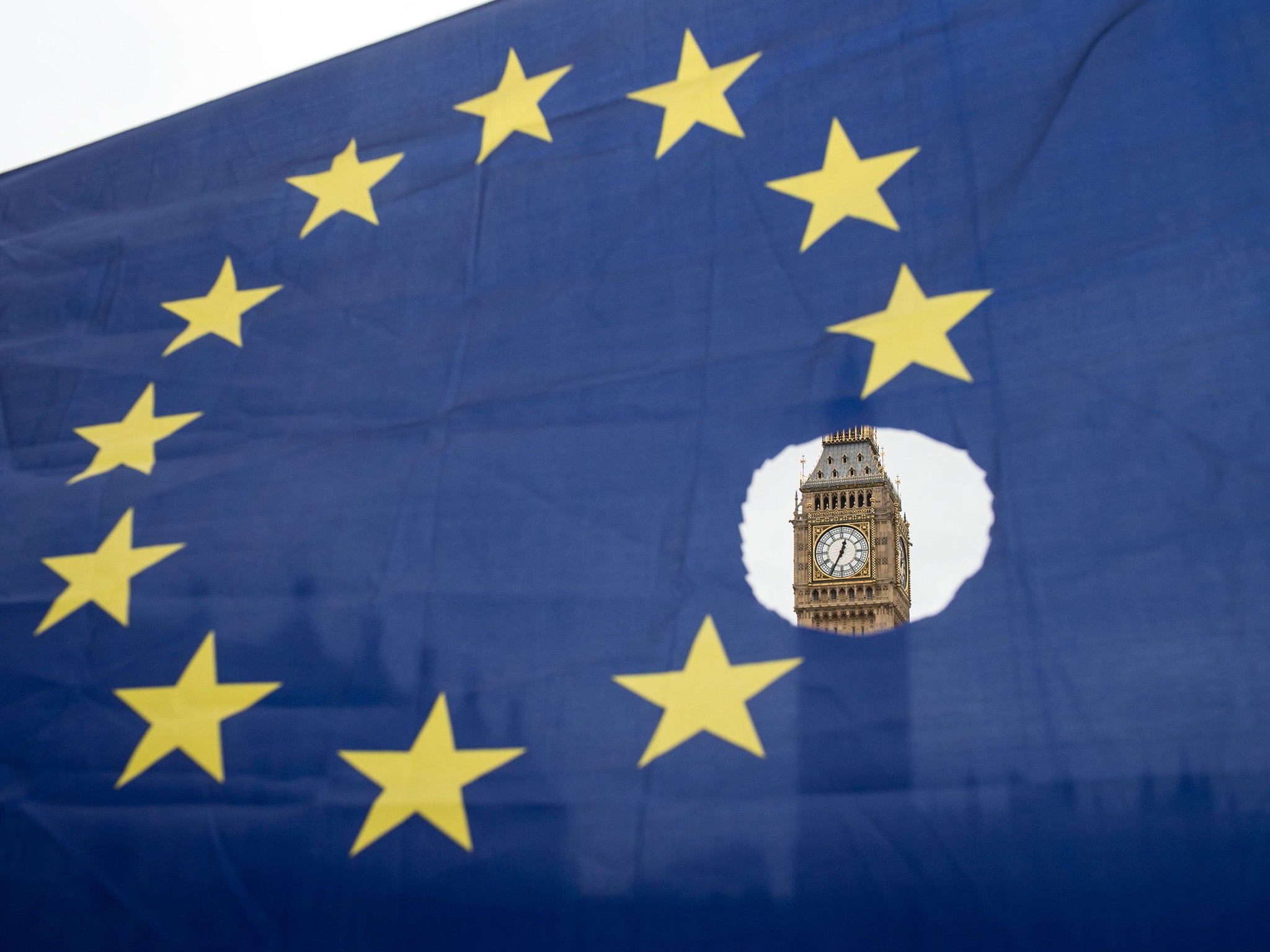Britain will not have same access to single market after Brexit, top Tory in Brussels admits
Exclusive: Ashley Fox MEP says EU states will not allow Britain to be in a better position outside of the bloc

The leader of Theresa May’s Conservatives in the European Parliament has admitted the UK will not have the same access to the single market after Brexit as it enjoys now.
Ashley Fox MEP said it is inevitable Britain will lose ground in exporting goods and services to the continent, admitting there are some “disadvantages” to quitting the bloc. Speaking to The Independent he also said he believed the EU was set to do everything in its power to ensure that the UK is not in a better position outside the union.
It comes as Theresa May is set to face a cross-party push from Tory and Labour MPs to ensure the UK remains in the single market during a transition to new trading arrangements, a move backed by British business.
Mr Fox said: “We will come to a deal with Europe that will not involve paying billions of pounds each year, it will involve a return of control of our borders to the UK. But it is unlikely that we will retain identical market access over all goods and services – I think that is inevitable.”
He added that he believed there were both “advantages and disadvantages” to Brexit and noted that he “understands” why Europe would not be willing to allow Britain to have a deal of equal or better standing. He said: “I think we will get a good deal, but there clearly will be an emphasis on the EU side that we shouldn’t have a deal that puts in a better position than we have at the moment and we understand where they are coming from.”
The MEP went on to add that being able to strike its own trade deals will be an advantage for the UK as it seeks to forge a new place for itself in the world.
Criticising the EU’s approach to international trade, he highlighted that strained years of negotiations that led up to the Ceta deal being signed with Canada. He went on: “Canada is probably the most liberal democracy you could find anywhere in the world, yet still the negotiations were hung up on a manner of questions – it was just extraordinary.
“That inability to strike free trade deals with the rest of the world has been a disadvantage to the UK.”
Theresa May faces a Commons showdown next month when Labour and rebel Conservative MPs join forces to try to stop Britain crashing out of the EU single market on Brexit day. The MPs plan to force a September vote to keep the UK in the European Economic Area (EEA) for several years at least, to avert fears of severe economic damage when EU withdrawal is completed in 2019.
Crucially, Labour’s frontbench appears to have thrown its weight behind the move, with Brexit spokesman Sir Keir Starmer describing “transition on current terms” as essential.
In an interview this week Jean Claude Juncker, the president of the European Commission, has said Brexit would continue despite the UK becoming more aware of the complications that have arisen during the divorce negotiations. “People will become more and more conscious of the density of problems on a daily basis, without always being able to provide a coherent answer to these problems,” Mr Juncker told Politico.
The Maltese Prime Minister Joseph Muscat, reportedly said the difficulties provided "hopeful signs" that "Brexit will not happen" – a claim that Mr Juncker was keen to distance himself from. "I don't go as far as the Maltese Prime Minister who has not ruled out that it will not come to Brexit. My working hypothesis is that it will come to Brexit."
Join our commenting forum
Join thought-provoking conversations, follow other Independent readers and see their replies
0Comments